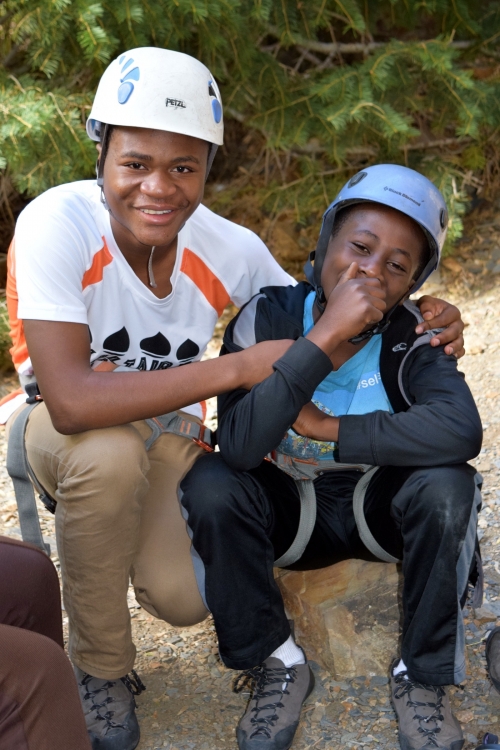Many refugees and asylees living in Salt Lake City have successfully integrated into local communities and economies with the assistance of basic refugee services. However, refugees and asylees who have survived torture and severe war trauma often require more than basic services to help them gain control of their lives and build confidence in their futures.
Torture prevalence varies greatly by country of origin, religion, and tribal affiliation. Among refugees resettled in Utah, groups with torture prevalence ranging from 50-69% include survivors from Ethiopia, Iraq, and Western Sudan. Torture prevalence of 5-35% is found among refugees from Burma (including ethnic minority groups Karen, Chin, and Mon), the Democratic Republic of Congo and Bhutan. Utah has resettled refugees since 1983 and is home to over 50,000 refugees. That means that Utah is likely home to approximately 17,500 survivors. Utah Health and Human Rights sees an average client increase of 30% annually.
Dealing with Trauma
In addition to debilitating physical injuries, survivors of torture and severe war trauma have a high incidence of complex, often co-existing mental health issues, such as PTSD (70%), major depressive disorder (65%), anxiety, psychosis, and dissociative disorder. Many also experience social stressors such as extreme poverty, lack of environmental mastery, language barriers, social isolation, and loss of professional and social status.
Survivors of torture and severe war trauma need highly specialized, co-located, and comprehensive services that sensitively and effectively address their complex psychological, physical, social, and cultural needs. Utah Health and Human Rights is the only program in Utah dedicated to assisting refugees and asylees who have been most severely impacted by torture and severe war-related violence. The unique services provided by UHHR, combined with each survivor's remarkable resiliency, helps men, women, children, and families heal, rebuild their lives, integrate into communities, and become self-sufficient.
Demographics & Countries of Origin
Utah Health and Human Rights serves refugees, asylum seekers, and asylees who have survived torture and severe war trauma. Our clients are men, women, and children and range in age from infants to elderly.
Current clients originate from:
- Afghanistan
- Armenia
- Bosnia and Herzegovina
- Chad
- Cote D' Ivoire
- Democratic Republic of the Congo
- El Salvador
- Eritrea
- Ethiopia
- Gambia
- Iran
- Iraq
- Jordan
- Kazakhstan
- Kenya
- Kuwait
- Libya
- Mexico
- Myanmar
- Republic of Moldova
- Rwanda
- Somalia
- Sri Lanka
- Sudan
- Syria
- Yemen.

